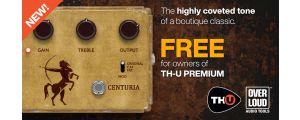“It feels so cool to know that people are getting inspiration from your work. It makes you want to keep pushing ahead…”
There have been few producers who have had the meteoric career rise that Bryan Yepes, better known as BRYVN experienced. In his first year as a producer he achieved over 20 placements, a worldwide publishing deal and multiple Grammy nominations. His work on tracks like Juice Wrld’s “The Bees Knees”, Trippie Redd’s “Throw It Away" and Myke Towers “Easy Money Babe” catapulted him into the top echelon of music professionals. Not bad for an ex-metal-core guitarist who just a year before was slogging away at a 9-5 USPS job. Since that first breakthrough year he has worked with artists such as Young Thug, Kid Cudi & Strick, Polo G & Nicki Minaj, Don Toliver and others, both as a producer and sometimes writer/composer.

BRYVN quickly migrated from his guitar-playing background to mastering the use of synths and plug-in software like all the Spectrasonics titles. We caught up with him to discuss how he got to where he is, his mindset to succeed, and how he maintains his life balance between his burgeoning career and his all-important family life.
From Small Beginnings
BRYVN started playing guitar in his teens, and after graduating from a school for audio engineering and production, he played in a number of metal-core/hardcore bands in LA (2010 – 2016). During those years he worked at a telemarketing job for a mortgage company to pay his bills, and the day he graduated from audio school they let him go. He recalls: “Damn, I had a plan. That job’s schedule was perfect for my musical activities, I was in a band… and then the band broke up, I lost my job, I just felt like my whole world was shattering. But with a pregnant wife I had to do something.” A friend helped hook him up with the Postal Service, but that was a very demanding schedule, with 10-hour days and only one day off every other week. Even so, he made the time to work on music for 2-3 hours every night. He practiced his craft, worked on his keyboard chops, and studied the music and productions that he liked. He would research songs to see who worked on it, and would reach out to them. And through that process he found some opportunities. One could say he made some opportunities happen.
“I’ve always felt like my life revolved around creative stuff.”
His first connection came when he started working with G. Ry, and then Rodney J, who was so impressed with BRYVN that he offered to sign him. It seemed like a good deal to the USPS-working young father, but a number of other associates told him to hold off, there were other deals to come. He made the hard decision to wait, and he recalled, “I just kept working hard and planning for the future. But I hated my day job, and it was bringing me down, affecting my attitude. Finally, my wife and I sat down and looked at our finances and we realized that I could take a year off and really invest in my career future. It was a scary move to make; I had no security, no safety net, and no deal in hand. But I took the plunge, and before you know it, the “Juice World” record came out, some others followed, and pretty soon every month I had two songs released. It was so beautiful, it felt like God was taking care of us.”
From coming in from the 9-5 work world to breaking out, it really only took a year.

Even more incredibly, by the end of that tumultuous year he was offered a publishing deal. “What got me signed into a really good deal was a record I was supposed to have with Roddy Ricch and Kendrick Lamar, called “Antisocial.” It was supposed to be included on Ricch’s album Please Excuse Me For Being Antisocial, but it never dropped. Even though it didn’t come out, it got a lot of labels interested and I ended up signing with Warner Chappell. That allowed me to focus on making music, while sustaining me and my family — it completely changed my life.”
The Way Up
It seems incredible to most of us how quickly things took off for him, but it was a lot of hard work and focused effort that made it happen. BRYVN advises, “Always practice what you’re doing, try to become a better musician. Network, network, network is the biggest key. It’s definitely about who you know, and who knows about you. I’ve always believed that honest work takes you far.”
“We’re in an era where hustle beats talent, so your hustle needs to be 110%.”
When asked for his #1 piece of advice for aspiring producers, BRYVN didn’t hesitate: “Don’t give up! There’s always moments where you’re going to doubt yourself, I’ve been through it, but it’s always going to be possible to succeed.”
Long before he hit it big he had moved up to Sacramento, and that city is not the hub of any major music community. “Sacramento is better for my family life. I’ve got a setup here, and it’s where I go to lock in and discover myself. There’s something special when you’re just in tune with yourself. You make things that are a little different; your ideas come out different. So it’s cool to go to LA and take in all that inspiration from other great people that I work with, but I like being able focus on the family when they need me.”
Tools Of The Trade
In his earlier days BRYVN worked almost exclusively within (Native Instruments) MASCHINE. But that all changed when a friend told him about Spectrasonics Omnisphere software synthesizer. “So I bought it”, states BRYVN, “and I immediately fell in love with it. My “Juice World” track is all off of Omnisphere. Then I saw all these people releasing custom patches, but for them to work I needed Keyscape and Trilian. I was hearing all these great basses, those pianos… so I got them as well. I can tell you, the amount of records that have been made because of those software titles is insane.”
“A lot of my records only exist because of Spectrasonics.”
In his studio BRYVN has a variety of hardware synths and instruments, but when he travels software becomes his whole world. “I used to go to LA every month, but now it’s more like every other month. And then I started working more in Houston. The Spectrasonics stuff is super clutch when I’m on a plane, or in a hotel room. I find it really quick and easy to find a good sound and keep focused on the music. It really sounds like the real deal!”

While he started as a guitarist, BRYVN considers himself a multi-instrumentalist at this point. “I started playing guitar, and it’s still my #1 axe if someone wants me to add something to their track. Now I am comfortable with the keys and my DAW, so I have gotten more focused on some real synthesis stuff.
“But I still play guitar on a majority of my tracks, it just happens later, as a production element.
I’ve even used the guitars in Omnisphere, I like to layer them on my real guitar playing. I do that a lot, if I use a real piano I’ll go back and add another copy of the part with some other sound to enhance it.”
“You can really see how software plug-ins have evolved alongside the needs of working musicians. They are the future.”
Pointing To The Future
“The more you grow in this business, the more people you work with and grow your network, the more potential you have. We’re in an age where collaboration on a track is key”, states BRYVN. “You need the tune, you need a loop, you need a starter element… so people recognize that my role is an important part of the process. There’s nothing greater than when you’re making money with what you love, and I’m really happy doing what I’m doing.”






